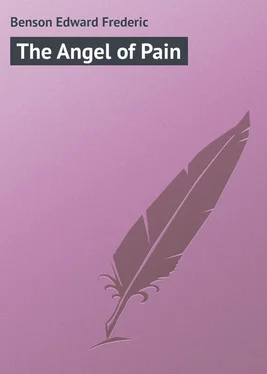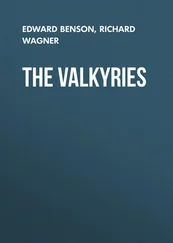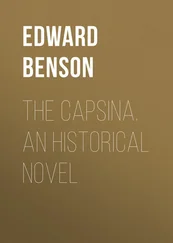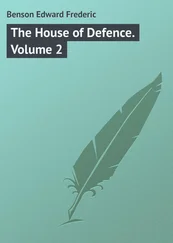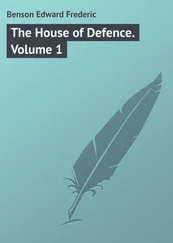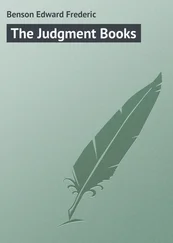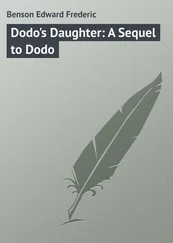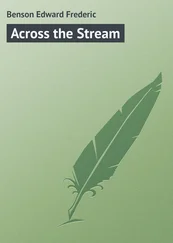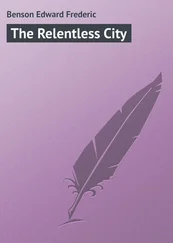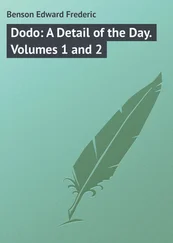Edward Benson - The Angel of Pain
Здесь есть возможность читать онлайн «Edward Benson - The Angel of Pain» — ознакомительный отрывок электронной книги совершенно бесплатно, а после прочтения отрывка купить полную версию. В некоторых случаях можно слушать аудио, скачать через торрент в формате fb2 и присутствует краткое содержание. Жанр: foreign_prose, на английском языке. Описание произведения, (предисловие) а так же отзывы посетителей доступны на портале библиотеки ЛибКат.
- Название:The Angel of Pain
- Автор:
- Жанр:
- Год:неизвестен
- ISBN:нет данных
- Рейтинг книги:5 / 5. Голосов: 1
-
Избранное:Добавить в избранное
- Отзывы:
-
Ваша оценка:
- 100
- 1
- 2
- 3
- 4
- 5
The Angel of Pain: краткое содержание, описание и аннотация
Предлагаем к чтению аннотацию, описание, краткое содержание или предисловие (зависит от того, что написал сам автор книги «The Angel of Pain»). Если вы не нашли необходимую информацию о книге — напишите в комментариях, мы постараемся отыскать её.
The Angel of Pain — читать онлайн ознакомительный отрывок
Ниже представлен текст книги, разбитый по страницам. Система сохранения места последней прочитанной страницы, позволяет с удобством читать онлайн бесплатно книгу «The Angel of Pain», без необходимости каждый раз заново искать на чём Вы остановились. Поставьте закладку, и сможете в любой момент перейти на страницу, на которой закончили чтение.
Интервал:
Закладка:
“No, not the least cold-blooded, and you have every right to marry him,” she said. “For you may be quite sure that you soon will be in love with him, because I assure you that already it has made an enormous difference in you. How do I know that? I can’t possibly tell you, any more than you can tell exactly why a person looks ill. You say her face looks drawn. What’s drawn? Why, the same as ill. You’ve woke up, dearest; you’ve come to life. Life! there’s nothing in the world so good as that.”
Madge leaned forward, and spoke more eagerly.
“Yes, you’re right,” she said, “though I don’t know that your reason is right I have somehow come to life. But it puzzles me a little to know how it has happened, or why.”
Gladys nodded her head with an air of wisdom, and got up. At this time of the year she seldom spent more than an hour in any one place, and still more seldom with only one person, and both Madge and Madge’s house had now enjoyed their full share of her time.
“Ah, I am very bad at riddles,” she said, “and, besides, none of us know ‘why’ about anything, and, on the whole, reasons and motives matter very little. Things that happen are so numerous and so interesting that one has literally not time to probe into them and ask how and why. And after all, dear, when anything so very nice has happened as your engagement, which too has brought such a gain to you in yourself, I am more than content, and so should you be, to accept that as it is. Now, I must simply fly; I am dining out and going to the opera, and to a dance afterwards. What a pity there are not forty-eight hours in every day.”
This regret was subsequently shared by Madge herself, who found that the life of a young woman who is going to be married in six weeks’ time, for the wedding had been fixed for the end of July, implies a full engagement book. And in addition to the ordinary calls on her time, hours were further claimed from her by Evelyn Dundas, who apparently had insisted to another sitter on the prior rights of this subsequent engagement, and announced himself free to begin her portrait at once, to give her sittings whenever she could sit, and finish it as quickly as his powers of brush would permit him. His impetuousness, as usual, swept away all difficulties, and before a fortnight had elapsed, Madge had already given him four sittings, and the picture itself was beginning to live and breathe on his canvas.
These sittings, or rather the artist’s manners and moods during them, were strangely various. Sometimes for half-an-hour, as Madge complained, he would do nothing but stare at her, grunting to himself, and biting the ends of his brushes. Then in a moment all would be changed, and instead of staring and grunting with idle hands, he would glance at her and record, record and glance again, absorbed in the passion of his creation, whistling sometimes gently to himself, or at other times silent, but with a smiling mouth. Then that wind of inspiration that bloweth where it listeth would leave him again, and he would declare roundly that he did not know what she was like, or what his picture was like, but that the only thing quite certain was that his picture was not like her. Then, even while these gloomy announcements were on his lips, even in the middle of a sentence, he would murmur to himself, “Oh, I see,” and the swish of the happy brush would alone break the silence. At other times there was no silence to break, and from the time she stepped up on to the platform till when she left it, he would pour out a perfect flood of inconsequent nonsense. Or, again, the hours passed in unbroken conversation between the two, the talk sometimes flitting like a butterfly over all the open flowers of life, but at other times, as it had done once or twice at Philip’s house, dropping suddenly into the heart of things, finding sometimes honey there, but sometimes shadows only.
A sitting of this latter kind had just come to an end, and Evelyn, after seeing his sitter into her carriage, had returned to his studio, still palette in hand, meaning to work for an hour at the background. Certainly in this short space of time he had made admirable progress, and he knew within himself that this was to be a landmark of his work, and up to the present, at any rate, his high-water mark. He had drawn the girl standing very upright, as was her wont, but with head a little thrown back, and her face, eyes, and mouth alike laughed. It was a daring conception, but the happiness of the execution was worthy of it, and the fore-shortening of the face owing to the throw-back of the head, the drawing, too, of the open mouth and of the half-closed eyes was a triumph. Her figure was shown in white evening dress, with hands locked together, carrying a feather fan, and arms at full length in front of her; over her shoulders, half thrown back, was a scarlet opera cloak, the one note of high colour in all the scheme. Behind her, on the wall, he had introduced, by one of those daring feats that were labelled by detractors as “cheeky,” but by any who estimated fairly the excellence of the execution, a round gilt-framed mirror, with a convex glass in it, on which was distortedly reflected the room itself and the back of the girl’s figure. It was at this that he had returned to work now.
Evelyn’s studio, like all rooms much used by anyone who has at all a vivid personality, had caught much of the character of its owner. He had made it out of the top floor in his house in the King’s Road, by throwing all the attics into one big room. Often for a whole day he would not stir from it till it was too dark to paint, having a tray of lunch brought him which sometimes he would savagely devour, at other times leave untouched till he was literally faint with hunger. It was easy to see, too, how the room had grown, so to speak, how it had picked up his characteristics. The big divan, for instance, in the window, piled with brightly-coloured cushions, had evidently been of the early furniture, a remnant of imperishable childhood; so, too, no doubt, was the open Dutch-tiled fireplace, the Chippendale table, the few big chairs that stood about, and the Japanese screen by the door. After that, however, all sorts of various tastes showed themselves. A heap of dry modelling clay in one corner recorded a fit of despair, when he had asserted that the only real form of art was form itself, not colour; a violin with two strings missing denoted that after hearing Sarasate he was convinced, for several hours at least, that the music of strings was alone the flower worth plucking, and showed also a delightful conviction that it was never too late to learn, though the broken strings might imply that it was now too late to mend. A set of Punch , complete from the beginning, lay like a heap of morraine stones round the sofa, a bag of rusty golf-clubs stood in a corner, and behind the Japanese screen leaned a bicycle on which dust had collected, an evidence of its being, for the time at any rate, out of date far as its owner was concerned. But three months before or three months afterwards a visitor might scarcely have recognised the room again. A portrait might have been finished, and with disengaged eyes Evelyn would survey what he would certainly call his pigsty. The bicycle would be sent to the cellar with the golf clubs slung on to it, the heap of modelling clay be dumped on the dustheap, the Japanese screen banished to the kitchen, because for the moment Japanese art was a parody and a profanation, and the violin, perhaps, have its strings mended. Or again, instead of the Japanese screen being banished, Japan might have flooded the whole studio as its armies flood Manchuria, and an equally certain and uncompromising gospel pronounce that it alone was good.
It was then to this temple of contradictions that Evelyn returned, three steps to a stride, after seeing Madge off. The figure was right; he felt sure of that, but the tone of the background somehow was not yet quite attuned to it. Above all, the mirror must be bright burnished gold, not dull, for the flame of the cloak, if it was the only note of high colour in the picture, consumed itself, burned away ineffectually, and it was with a heart that beat fast, not only from his gallop upstairs, but from excitement in this creation that was his, that he again stood before the picture. Yes, that was it; another high light was necessary.
Читать дальшеИнтервал:
Закладка:
Похожие книги на «The Angel of Pain»
Представляем Вашему вниманию похожие книги на «The Angel of Pain» списком для выбора. Мы отобрали схожую по названию и смыслу литературу в надежде предоставить читателям больше вариантов отыскать новые, интересные, ещё непрочитанные произведения.
Обсуждение, отзывы о книге «The Angel of Pain» и просто собственные мнения читателей. Оставьте ваши комментарии, напишите, что Вы думаете о произведении, его смысле или главных героях. Укажите что конкретно понравилось, а что нет, и почему Вы так считаете.
